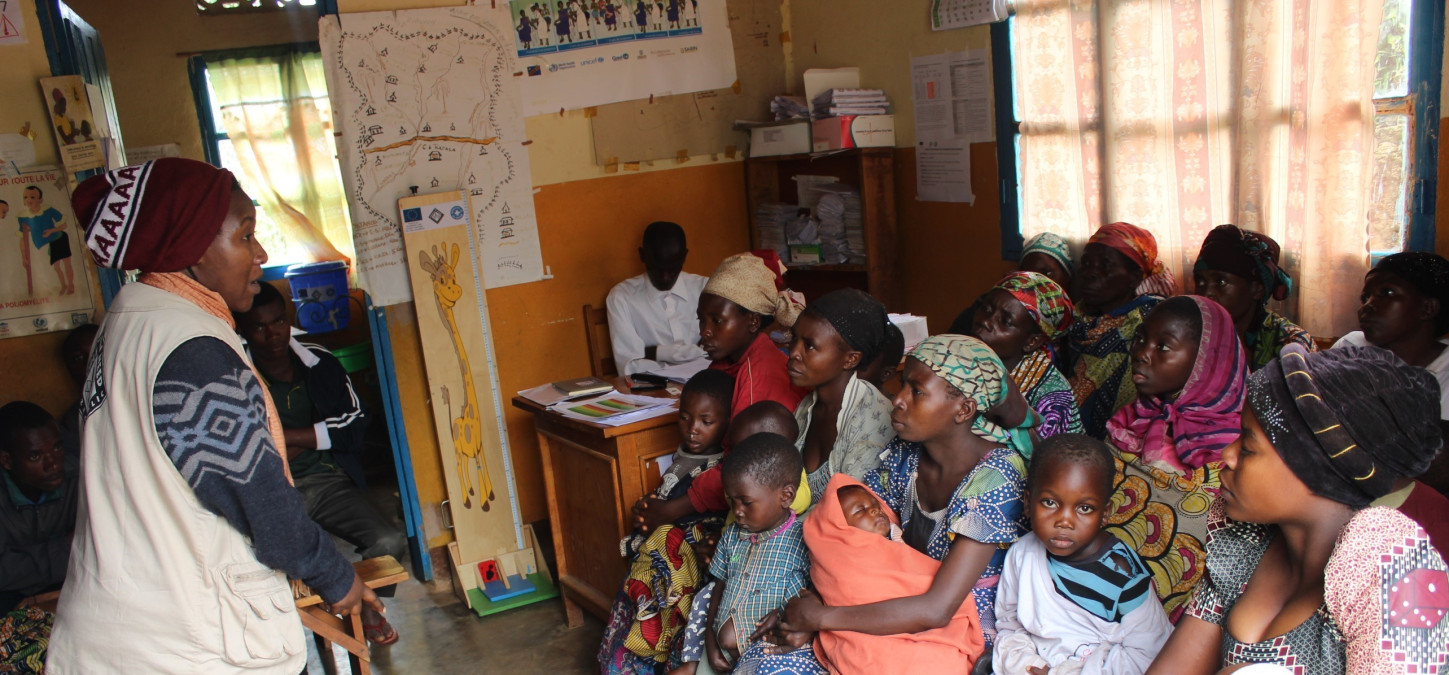Health and nutrition collaboration supports thousands in conflict-affected parts of DR Congo
Published: Nov 14, 2019 Reading time: 2 minutes Share: Share an articleFor people living in South Kivu Province, in the Democratic Republic of the Congo, healthcare indicators are heading in the wrong direction. In Lemera Health Zone, almost 10% of children under five suffer from acute undernutrition, and a staggering 34% who seek treatment never recover. Add to this, shortages in essential medicines at medical facilities and limited support for victims of sexual and gender-based violence, and it becomes clear that the health-related needs of people in this conflict-affected part of DR Congo are severe.

This is why People in Need (PIN) and Doctors of the World Belgium have combined technical expertise to provide nutrition treatment and primary healthcare services in South Kivu. Thanks to funding from the European Union’s Civil Protection and Humanitarian Aid Operations (ECHO), we have been supporting communities in the Lemera Health Zone since June 2019 with medical care and psychosocial support.
The joint intervention involves collaboration with health professionals at five local healthcare centers, as well as community outreach. “In order to offer better access to quality healthcare and to strengthen the health system in Katala, Mulengue and Ndegu health areas, we deliver medicines and equipment to local health facilities, allowing them to provide life-saving treatments and adequate quality of care,” says PIN DRC Program Manager Sebastien Kervyn. “To remove the financial barrier to healthcare, all consultations and medicines are free for patients. Furthermore, hired medical staff like doctors, midwives and nutritional nurses ensure that services are delivered according to the required standards,” he adds.
More consultations, screenings and awareness
During the first three months of the project, the combination of services significantly improved the care of obstetrical emergencies, and increased the number of medical consultations. Based on data from health centers, 5,411 consultations were provided between April and June of this year; that increased to 9,784 between July and September. “The program is also committed to community health and outreach, with screenings for severe acute malnutrition and through educational activities to raise public awareness on topics like breastfeeding and Ebola,” says Kervyn. The partners are also working to improve hygiene with distribution of sanitation material, restoration of health facilities, and enhanced waste management to prevent and control the transmission of infections.
- 1,162 people screened for malnutrition
- 318 people educated on breastfeeding and Ebola
The program will continue until June 2020, with the aim of supporting local communities that are most exposed to the effects of armed conflict in the area. A particular focus will be given to children under five and pregnant and lactating women who are internally displaced or returnees.









